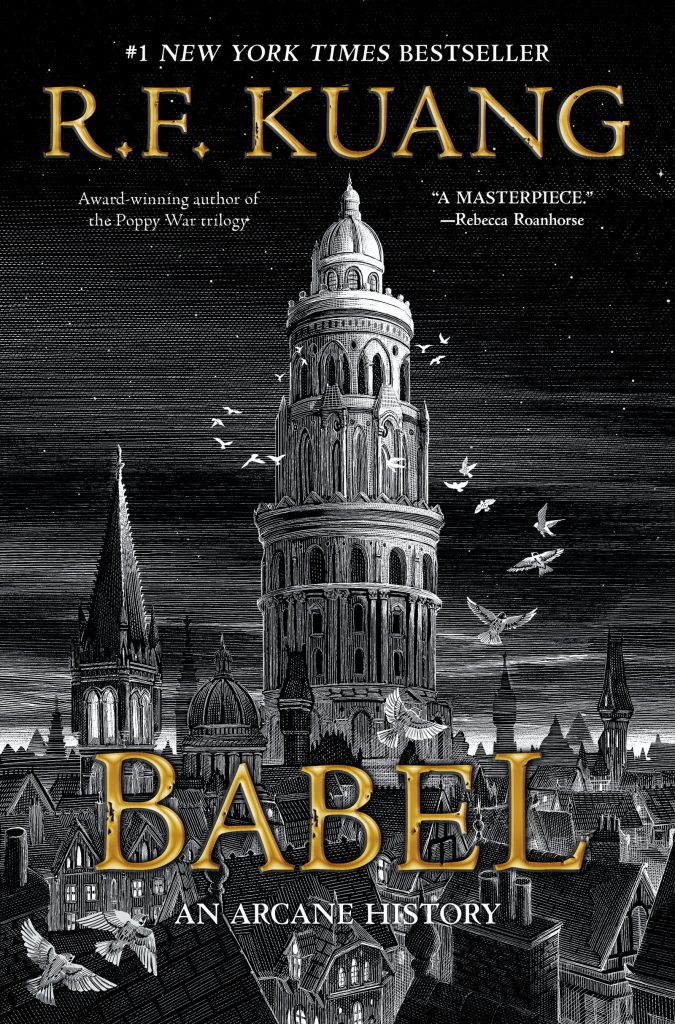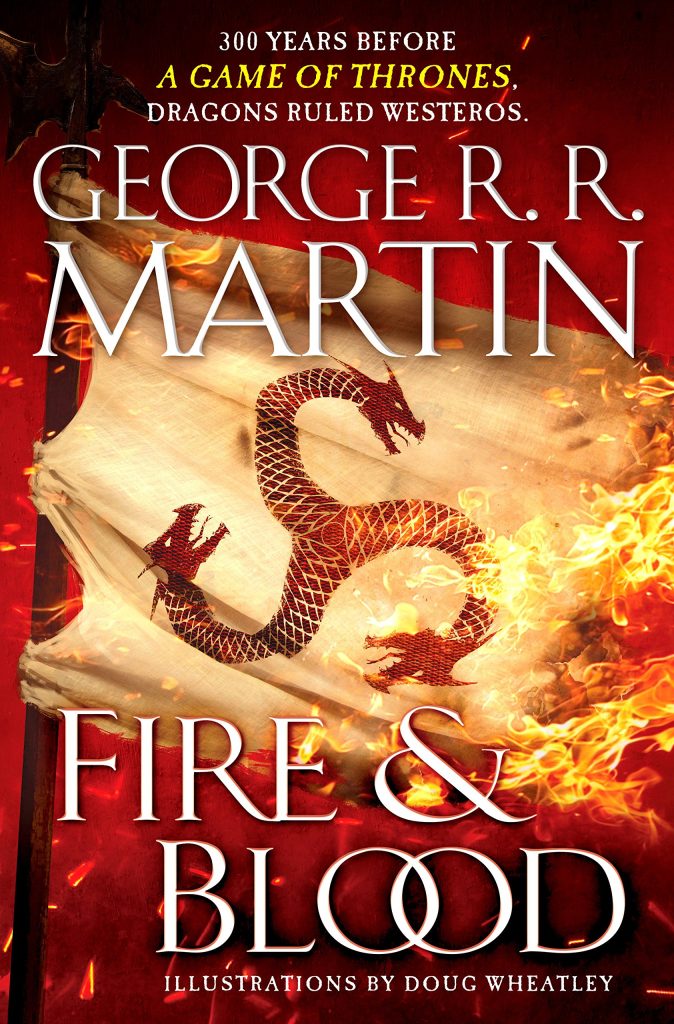Babel (full subtitle: Or, the Necessity of Violence: An Arcane History of the Oxford Translator’s Revolution) by R.F. Kuang is a big, bold, incredible conundrum of a novel. Anything clocking in at over 500 pages is already going to be asking a lot from its readers. And that title? Music to my history nerd ears (eyes?), but what a mouthful! From the jump, Kuang is telegraphing what you’re about to sink into, and that is a dense, at times challenging, historical epic. Babel follows Robin Swift as he’s taken from his home in Canton to be raised in England, priming him for a lucrative career in Oxford’s translation department. But things aren’t all what they seem, and Robin quickly gets caught up in an underground, anticolonial movement called the Hermes Society.
This book is marketed as a fantasy, but it’s light on the magic. In this version of Industrial Revolution era Britain, the gilded Oxford University has a Royal Institute of Translation (I googled: not a real thing) based out of a tower aptly named Babel. This institute works by translating and inscribing words into enchanted silver bars, which function like a source of energy for their owners. So, countries that can afford more silver bars gain more power. Kuang doesn’t imagine much of an alternate history here; Britain is the dominant force in the silver trade and thus has the strongest colonial power—just like real life. Truthfully, not much is different than actual British trade history. I know some readers were frustrated by that, but it doesn’t bother me. Just approach the novel like historical fiction with some slight fantasy elements, and that should mitigate any disappointment.
Rather than the more typical elements of fantasy fiction, the magic in this world is the act of translation itself. This might be where reader reactions diverge. Kuang, a scholar through and through (she currently has two Masters, one each from Oxford and Cambridge, and a PhD in East Asian Languages and Literature from Yale) is not shy about loading the text with thorough explorations of linguistics and the history of language. Your mileage may vary on how interesting this is; as someone who minored in linguistics, I am always happy to see the word “Proto-Indo-European” appear in the wild. Give me all the etymologies!
Continue reading
